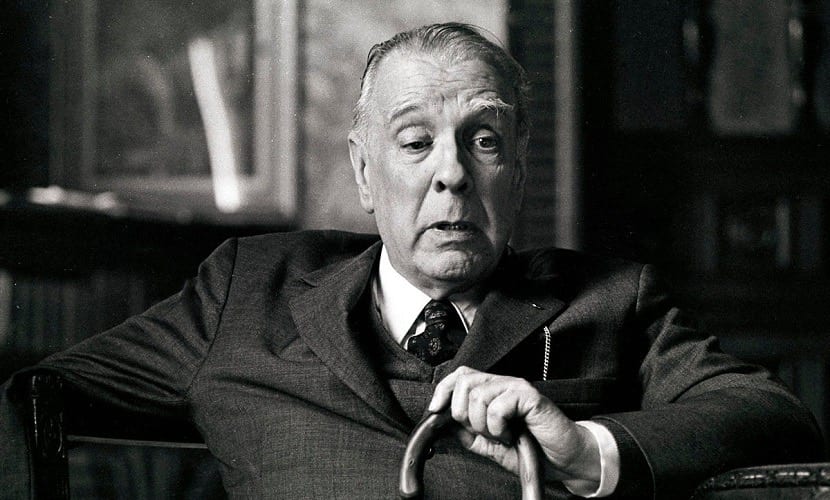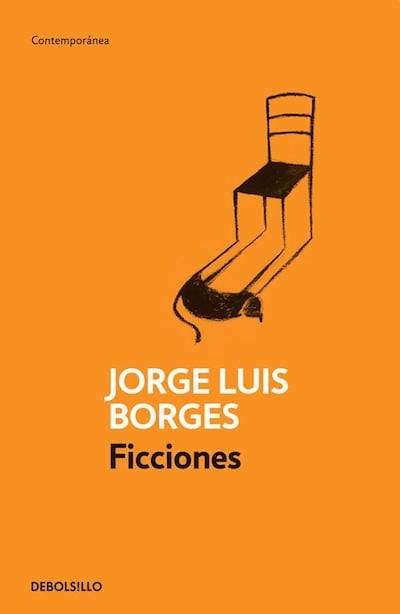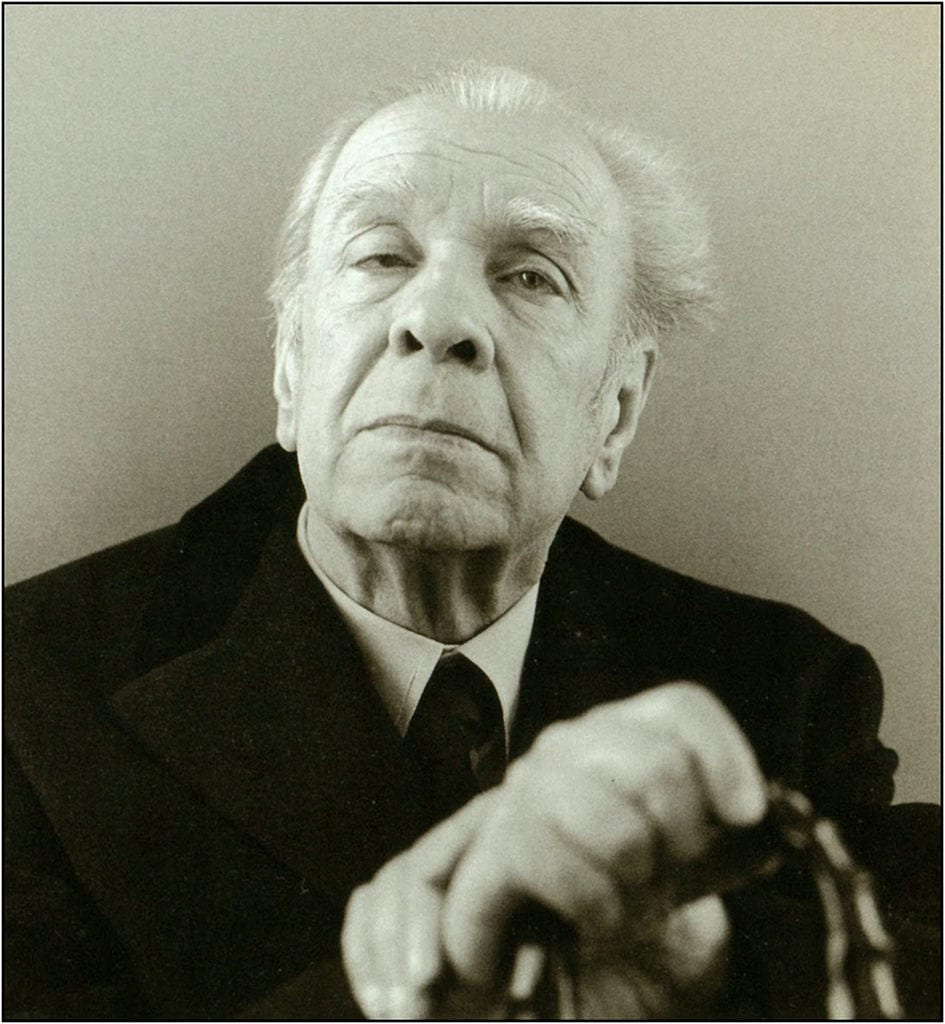
Do you want to read a brief Borges biography? Keep reading and we will tell you the most representative historical milestones in the life of this writer.
He came to the world in Buenos Aires (Argentina), specifically on August 24, 1889, by the hand of a decisive family in the political field of his country. Son of Jorge Borges Haslam, professor of psychology and English, and Leonor Acevedo Suárez.
At just 6 years old, I was already clear that I wanted to be a writer. His first fable (1907) entitled "The fatal visor" It was inspired by a passage from Don Quixote.
Right in the same year that World War I broke out, the Borges family toured Europe. Borges' father was left blind so he had to quit his job as a teacher. They stepped on Paris, Milan and Venice, but they stayed in Geneva.
Being already a teenager devoured classics like those of Votaire or Víctor Hugo. He discovers German expressionism in awe and at his own risk dares to decipher the novel "The golem" by Gustav Meyrink.
Around 1919 he began to reside in Spain. First it was in Barcelona and then he moved to Mallorca. In Madrid he befriended a notable polyglot and translator, Rafael Cansinos-Assens, whom he proclaimed as his teacher. Known were also Valle-Inclán, Juan Ramón Jiménez, Ortega y Gasset, Ramón Gómez de la Serna, Gerardo Diego, etc.
It was thanks to Borges translations, that the works of german expressionists they were known in Spain.
Back in Buenos Aires, his homeland
When he returned he founded the magazine Prisms, along with other young people, and later the magazine Bow. He signed the first Argentine ultraist manifesto and on a second trip to Europe he delivered his first book of poetry entitled "Fervor of Buenos Aires" (1923). The illustrations accompanying the book were made by his sister Norah:
This city that I believed was my past
it is my future, my present;
the years that I have lived in Europe are
illusory,
I was always (and will be) in Buenos Aires.
This was followed by numerous other publications: "Moon in front" (poetry, 1925), "San Martín Notebook" (poetry, 1929), "Inquisitions", "The size of my hope" y "The language of the argentines" (the latter are essays).

During the 30s his fame grew in Argentina but its international consecration it wouldn't come until many years later. Meanwhile he exercised above all Literary critic, painstakingly translating such successful writers as Virginia Woolf, William Faulkner, and Henri Michaux.
In 1938 his father died and it was in that same year that he suffered a serious accident caused by his progressive lack of vision.
It is shortly after this when Borges will permanently need the help of his mother, sister or friends to be able to write his stories.
Together with her friends Silvina Ocampo and Bioy Casares, she publishes her splendid anthologies: "Anthology of Fantastic Literature" y "Argentine poetic anthology ".
Borges's prose coexists with verse, because, as he himself stated: “Perhaps for the imagination both are equal. Fortunately, we are not due to a single tradition; we can aspire to all ”.
Two of his most successful books were: "The Aleph", written at the time when he was arguing with Peronism, and "Fictions" published in 1944.
At odds with Peronism
In 1945, Peronism is established in Argentina and his mother and sister Norah are arrested for making statements against the new regime. Borges, the government removed him from the position of librarian which he had at the time, and appoints him inspector of birds and rabbits in the markets. An undesirable honor that the blind poet renounces, to go on to earn his living as a lecturer ever since.
En 1950, the Argentine Society of Writers he is appointed by its president. This body had become notorious for its opposition to the new regime.
In 1955, with the fall of Peronism, the new government will appoint him director of the National Library and will also enter the Academia Argentina de las Letras. After all this, the other degrees obtained follow one after another: Doctor Honoris Causa from the University of Cuyo, National Prize for Literature, Formentor International Prize for Literature, Commander of Arts and Letters in France, and a long etcetera. .
In recent years…

He married in 1967 with Elsa Astete Millán, an old friend from his youth. But the marriage would only last 3 years. His next love would be already 80 years old, with Mary Kodama, his secretary, companion and guide. A woman much younger than him and of Japanese origin, who happened to be his universal heir.
He got the Cervantes Prize in 1979 but not the well-deserved Nobel Prize in Literature that so much acclaimed for him. The Swedish Academy refused to award him such a credit.
On June 14, 1986, he died in Geneva.
Borges biography summary
- 1899: On August 24, Jorge Luis Borges was born in Buenos Aires, Argentina.
- 1914: The Borges family resides in Paris, Milan, Venice and Geneva.
- 1919: Stay in Barcelona and Mallorca.
- 1921: Returns to Buenos Aires and founds the magazine "Prism".
- 1923: Publishes his first book of poems "Fervor of Buenos Aires".
- 1925: Publishes his second book of poems "Moon in front".
- 1931: Joins the magazine "South", founded by Victoria Ocampo.
- 1935: Appear "Universal history of childhood" and the following year "History of eternity".
- 1942: Under pseudonym (H. Bustos Domecq) publishes with Bioy Casares "Six problems for Don Isidro Parodi".
- 1944: Publish "Fictions".
- 1949: Publish "The Aleph".
- 1960: Publish "The maker", mixed book of prose and poetry.
- 1967: He marries Elsa Astete Millán.
- 1974: Peronism forces him to abandon his post at the National Library.
- 1976: Academician Artur Ludkvist declares that Borges will never win the Nobel Prize for Literature for political reasons.
- 1979: He is awarded the Cervantes Prize.
- 1986: Dies in Geneva on June 14.
Borges' personal work constitutes an indisputable precedent for the entire subsequent narrative. In it, philosophical and metaphysical they are often combined with the fantastic and the ironic. His work is a point of reference for the phase between the avant-garde and the new forms of the novel.

Would you add any important point to our particular Borges biography?
Thank you very much, the biography served me ...
THE TRUTH that by putting BRIEF, this page, was the shortest I found.
I shortened it and I stay very good (;
THANK YOU.bSO
Thank you very much, I re-served the biog ... kisses
hello this is nothing short but I shortened it in microsof word to me like many of you it served me for a task at school
thanks me re sirbioo 😀
It's very good, I saw a few more pages and this text is the shortest,
THANK YOU
Thank you very briefly and clearly for those of us who, after many years, have resumed our studies
you saved me from a 1 grax !!!!!!!!!!!!!!!!!!!!!! I had to do for the school the short biography of this great actor and I was already writing about 2 pages !!!!!!!!!!!!!!! seriously grax !!!! 😉
a question from the great great BORGES in his poem chess that he refers to by this:
They don't know that the pointed hand
of the player governs his destiny,
they do not know that an adamantine rigor
subject their agency and their journey.
Hello ... thank you for making this «summary» of the biography of Luis Borges ...
I just have one question……. when he died?????
VERY GOOD GUYSSSSSSSSS !! They really saved me thankssssssss
Thanks!!! It helped me a lot, it is just what I was looking for ... 5th here they have the biography!
Thank you, it helped me a lot for my homework ……… .. 🙂
he was a genius, wise and enlightened. indecipherable intelligence, culture and humanism, literary beacon.
Thanks, the information was very useful for my task
They are genius, they helped me thanks
Thank you, you helped me a lot, I had to deliver this tp in 10 minutes ... thank you very much indeed
Thanks to the biography of this man. I was able to get a good grade, the berda hopefully that the world one day this yeno of people like this man la berda very emotional as such an insignificant child and I go to be such a great person. He taught me that knowing you can ..
Thank you!!! It helped me a lot for a task and the truth is that it is well abbreviated ... the only thing I saw that it was missing is when it died. Kisses!
Thank you very much for this summary 🙂
died in 1986 in Geneva
What a Short Summary But Thank You It Served Me Too Much 7
holis how cool i thought the biography of jorge luis borges
Borges, a genius since he was a child, a brilliant mind. Pity his blindness. In the Argentina that he loved so much, we would need many Borges.